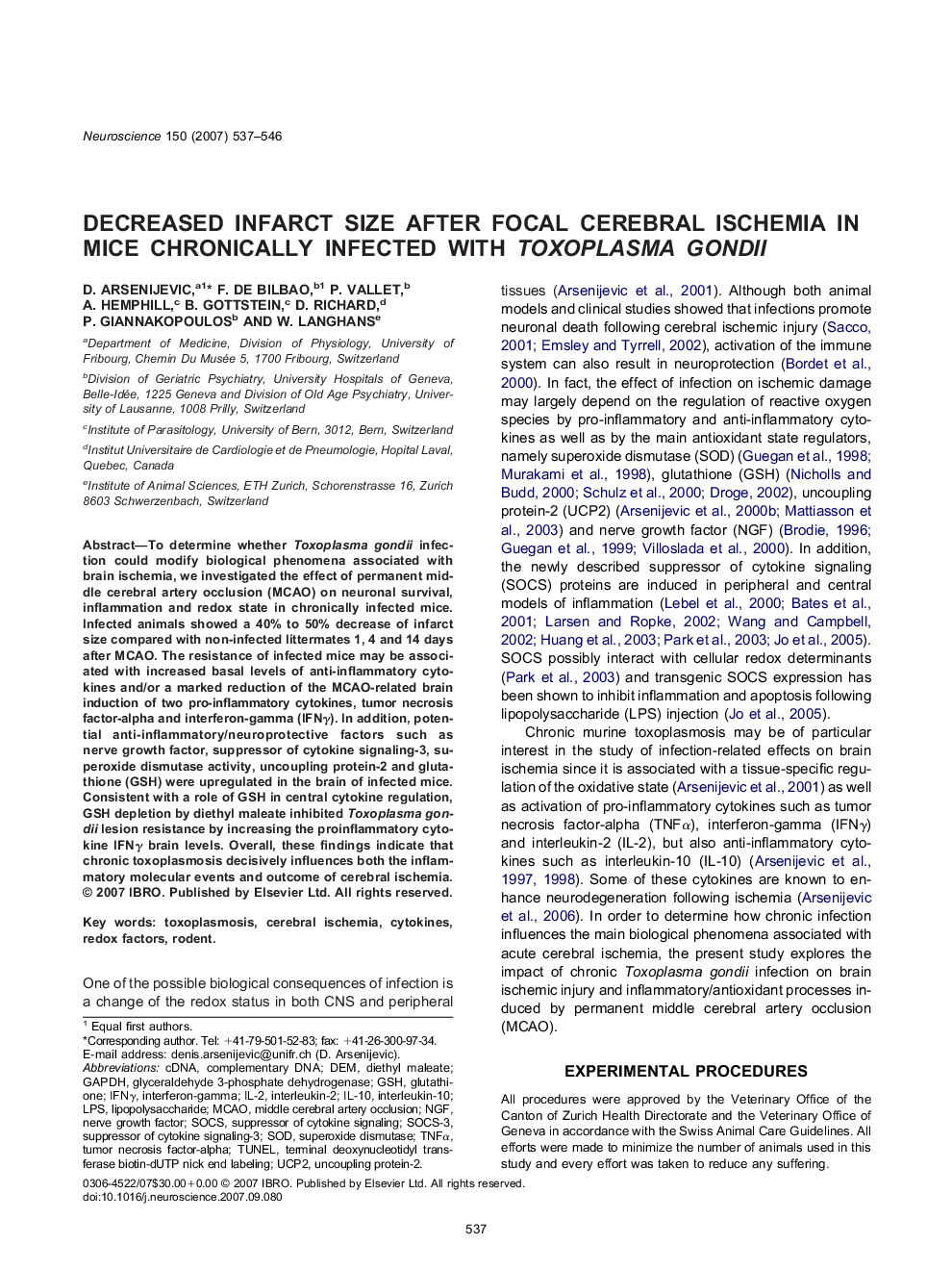| Article ID | Journal | Published Year | Pages | File Type |
|---|---|---|---|---|
| 4340941 | Neuroscience | 2007 | 10 Pages |
To determine whether Toxoplasma gondii infection could modify biological phenomena associated with brain ischemia, we investigated the effect of permanent middle cerebral artery occlusion (MCAO) on neuronal survival, inflammation and redox state in chronically infected mice. Infected animals showed a 40% to 50% decrease of infarct size compared with non-infected littermates 1, 4 and 14 days after MCAO. The resistance of infected mice may be associated with increased basal levels of anti-inflammatory cytokines and/or a marked reduction of the MCAO-related brain induction of two pro-inflammatory cytokines, tumor necrosis factor-alpha and interferon-gamma (IFNγ). In addition, potential anti-inflammatory/neuroprotective factors such as nerve growth factor, suppressor of cytokine signaling-3, superoxide dismutase activity, uncoupling protein-2 and glutathione (GSH) were upregulated in the brain of infected mice. Consistent with a role of GSH in central cytokine regulation, GSH depletion by diethyl maleate inhibited Toxoplasma gondii lesion resistance by increasing the proinflammatory cytokine IFNγ brain levels. Overall, these findings indicate that chronic toxoplasmosis decisively influences both the inflammatory molecular events and outcome of cerebral ischemia.
